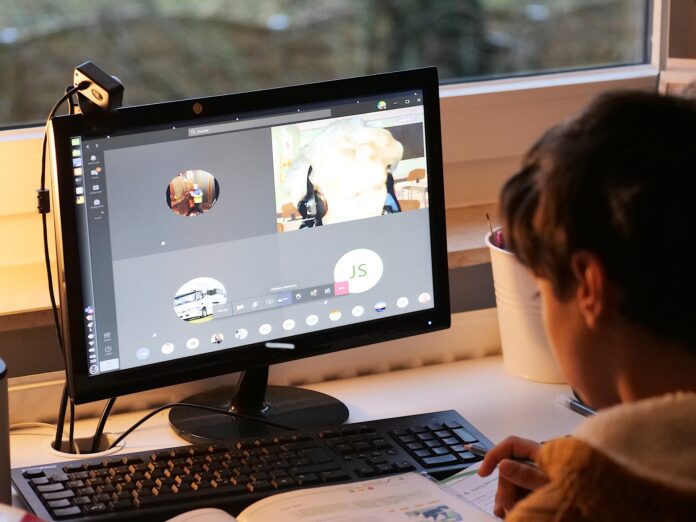Secondary school children struggled to concentrate and engage with schoolwork in the move to online learning during lockdown, negatively affecting their confidence and wellbeing, according to a new study.
Researchers from Swansea University and Cardiff University surveyed a total of 407 pupils aged between 11 and 18 during November 2020 when schools had reopened.
Lead author Professor Nicola Gray of the Faculty of Medicine, Health, and Life Sciences at Swansea University said: “We wanted to examine if there were differences in concentration, motivation, and engagement from a pupil’s perspective during online and classroom-based teaching. So we asked pupils to compare their normal classroom experience to learning online.”
The pupils answered questions on their ability to concentrate, how motivated and engaged they felt, and if they felt confident in their ability to learn. Analysis of their responses showed pupils’ learning experiences were significantly lower for online learning compared to classroom learning. Also these differences were more marked in students with specific learning difficulties.
Professor Gray added: “As previous research has shown that 50 per cent of lifetime
cases of mental health disorders begin before the age of 14 there are concerns that the pandemic would lead to a surge of mental health difficulties for young people. These results show a substantial decrease in pupil’s learning experiences compared to the normal classroom experience. The problem is even worse for those with working memory problems.
“Given the demonstrated association between engagement in education and children’s mental wellbeing, it is imperative that educators find ways of overcoming problems encountered during online education to prevent a greater proportion of young people requiring mental health support and intervention.”
Tom Walters, member of the research team and senior leader at Howells School Llandaff (Girls Day School Trust) added: “During online learning staff were aware that many were struggling to adapt to the new mode of learning, particularly those with specific learning difficulties. With the likelihood of this mode of learning being more prevalent in future, we were keen to better understand the demands of learning remotely, and tried to do so in an evidence-based manner.”
The full paper has been published in the British Journal of Educational Psychology
Help keep news FREE for our readers
Supporting your local community newspaper/online news outlet is crucial now more than ever. If you believe in independent journalism, then consider making a valuable contribution by making a one-time or monthly donation. We operate in rural areas where providing unbiased news can be challenging. Read More About Supporting The West Wales Chronicle
























